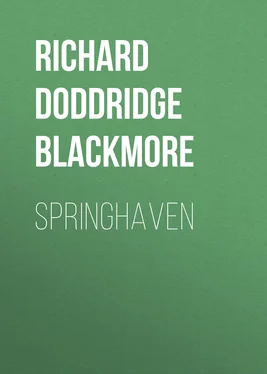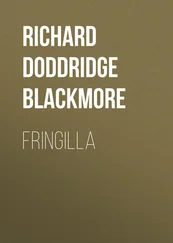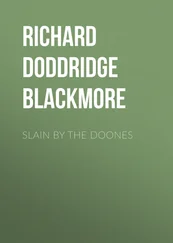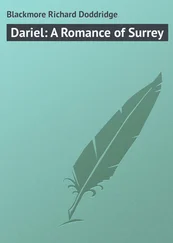Richard Doddridge Blackmore - Springhaven
Здесь есть возможность читать онлайн «Richard Doddridge Blackmore - Springhaven» — ознакомительный отрывок электронной книги совершенно бесплатно, а после прочтения отрывка купить полную версию. В некоторых случаях можно слушать аудио, скачать через торрент в формате fb2 и присутствует краткое содержание. Жанр: foreign_prose, История, foreign_edu, foreign_antique, на английском языке. Описание произведения, (предисловие) а так же отзывы посетителей доступны на портале библиотеки ЛибКат.
- Название:Springhaven
- Автор:
- Жанр:
- Год:неизвестен
- ISBN:нет данных
- Рейтинг книги:3 / 5. Голосов: 1
-
Избранное:Добавить в избранное
- Отзывы:
-
Ваша оценка:
- 60
- 1
- 2
- 3
- 4
- 5
Springhaven: краткое содержание, описание и аннотация
Предлагаем к чтению аннотацию, описание, краткое содержание или предисловие (зависит от того, что написал сам автор книги «Springhaven»). Если вы не нашли необходимую информацию о книге — напишите в комментариях, мы постараемся отыскать её.
Springhaven — читать онлайн ознакомительный отрывок
Ниже представлен текст книги, разбитый по страницам. Система сохранения места последней прочитанной страницы, позволяет с удобством читать онлайн бесплатно книгу «Springhaven», без необходимости каждый раз заново искать на чём Вы остановились. Поставьте закладку, и сможете в любой момент перейти на страницу, на которой закончили чтение.
Интервал:
Закладка:
“But,” persisted Dolly, “I could never understand why a famous man like Sir Edmond Scudamore—a physician in large practice, and head doctor to the King, as you have often told us—could possibly have died in that sort of way, without leaving any money, or at least a quantity of valuable furniture and jewels. And he had not a number of children, papa, to spend all his money, as I do yours, whenever I get the chance; though you are growing so dreadfully stingy now that I never can look even decent.”
“My dear, it is a very long sad story. Not about my stinginess, I mean—though that is a sad story, in another sense, but will not move my compassion. As to Sir Edmond, I can only tell you now that, while he was a man of great scientific knowledge, he knew very little indeed of money matters, and was not only far too generous, but what is a thousand times worse, too trustful. Being of an honorable race himself, and an honorable sample of it, he supposed that a man of good family must be a gentleman; which is not always the case. He advanced large sums of money, and signed bonds for a gentleman, or rather a man of that rank, whose name does not concern you; and by that man he was vilely betrayed; and I would rather not tell you the rest of it. Poor Blyth had to leave Cambridge first, where he was sure to have done very well indeed, and at his wish he was sent afloat, where he would have done even better; and then, as his father’s troubles deepened, and ended in his death of heart complaint, the poor boy was left to keep his broken-hearted mother upon nothing but a Latin Grammar. And I fear it is like a purser’s dip. But here we are at Stonnington—a long steep pitch. Let us slacken sail, my dears, as we have brought no cockswain. Neither of you need land, you know, but I shall go into the schoolroom.”
“One thing I want to know,” said the active-minded Dolly, as the horses came blowing their breath up the hill: “if his father was Sir Edmond, and he is the only child, according to all the laws of nature, he ought to be Sir Blyth Scudamore.”
“It shows how little you have been out—as good Mrs. Twemlow expresses it—that you do not even understand the laws of nature as between a baronet and a knight.”
“Oh, to be sure; I recollect! How very stupid of me! The one goes on, and the other doesn’t, after the individual stops. But whose fault is it that I go out so little? So you see you are caught in your own trap, papa.”
CHAPTER VIII
A LESSON IN THE AENEID
In those days Stonnington was a very pretty village, and such it continued to be until it was ravaged by a railway. With the railway came all that is hideous and foul, and from it fled all that is comely. The cattle-shed, called by rail-highwaymen “the Station,” with its roof of iron Pan-pipes and red bull’s-eyes stuck on stack-poles, whistles and stares where the grand trees stood and the village green lay sleeping. On the site of the gray-stone grammar school is an “Operative Institute,” whose front (not so thick as the skin of a young ass) is gayly tattooed with a ringworm of wind-bricks. And the old manor-house, where great authors used to dine, and look out with long pipes through the ivy, has been stripped of every shred of leaf, and painted red and yellow, and barge-boarded into “the Temperance Tap.”
Ere ever these heathen so furiously raged, there was peace and content, and the pleasure of the eyes, and of neighborly feeling abundance. The men never burst with that bubble of hurry which every man now is inflated with; and the women had time enough to mind one another’s affairs, without which they grow scandalous. And the trees, that kept company with the houses, found matter for reflection in their calm blue smoke, and the green crop that promised a little grove upon the roof. So that as the road went up the hill, the traveller was content to leave his legs to nature, while his eyes took their leisure of pleasant views, and of just enough people to dwell upon.
At the top of the hill rose the fine old church, and next to it, facing on the road itself, without any kind of fence before it, stood the grammar school of many generations. This was a long low building, ridged with mossy slabs, and ribbed with green, where the drip oozed down the buttresses. But the long reach of the front was divided by a gable projecting a little into the broad high-road. And here was the way, beneath a low stone arch, into a porch with oak beams bulging and a bell-rope dangling, and thence with an oaken door flung back into the dark arcade of learning.
This was the place to learn things in, with some possibility of keeping them, and herein lay the wisdom of our ancestors. Could they ever have known half as much as they did, and ten times as much as we know, if they had let the sun come in to dry it all up, as we do? Will even the fourteen-coated onion root, with its bottom exposed to the sun, or will a clever puppy grow long ears, in the power of strong daylight?
The nature and nurture of solid learning were better understood when schools were built from which came Shakespeare and Bacon and Raleigh; and the glare of the sun was not let in to baffle the light of the eyes upon the mind. And another consideration is that wherever there is light, boys make a noise, which conduces but little to doctrine; whereas in soft shadow their muscles relax, and their minds become apprehensive. Thus had this ancient grammar school of Stonnington fostered many scholars, some of whom had written grammars for themselves and their posterity.
The year being only at the end of March, and the day going on for five o’clock, the light was just right, in the long low room, for correction of manners and for discipline. Two boys had been horsed and brushed up well, which had strengthened the conscience of all the rest, while sobs and rubs of the part affected diffused a tender silence. Dr. Swinks, the head-master, was leaning back in his canopied oaken chair, with the pride inspired by noble actions.
“What wonderfully good boys!” Dolly whispered, as she peeped in through the dark porch with Faith, while her father was giving the horses in charge to the hostler from the inn across the way; “I declare that I shall be frightened even to look at Mr. Scudamore, if this is a specimen of what he does. There is scarcely a boy looking off his book. But how old he does look! I suppose it must be the effect of so much hard teaching.”
“You silly thing,” her sister answered; “you are looking at the great head-master. Mr. Scudamore is here at the bottom of the school. Between these big hinges you can see him; and he looks as young as you do.”
Miss Dolly, who dearly loved any sly peep, kept her light figure back and the long skirt pulled in, as she brought her bright eyes to the slit between the heavy black door and the stone-work. And she speedily gave her opinion.
“He is nothing but a regular frump. I declare I am dreadfully disappointed. No wonder the title did not come on! He is nothing but a very soft-natured stupe. Why, the boys can do what they like with him!”
Certainly the scholars of the Virgil class, which Blyth Scudamore was dealing with, had recovered from the querimonies of those two sons of Ovid, on the further side of Ister, and were having a good laugh at the face of “Captain Scuddy,” as they called their beloved preceptor. For he, being gifted with a gentle sense of humor, together with a patient love of the origin of things, was questing in his quiet mind what had led a boy to render a well-known line as follows: “Such a quantity of salt there was, to season the Roman nation.” Presently he hit upon the clue to this great mystery. “Mola, the salted cake,” he said; “and the next a little error of conjugation. You have looked out your words, Smith, but chanced upon the wrong ones.”
Читать дальшеИнтервал:
Закладка:
Похожие книги на «Springhaven»
Представляем Вашему вниманию похожие книги на «Springhaven» списком для выбора. Мы отобрали схожую по названию и смыслу литературу в надежде предоставить читателям больше вариантов отыскать новые, интересные, ещё непрочитанные произведения.
Обсуждение, отзывы о книге «Springhaven» и просто собственные мнения читателей. Оставьте ваши комментарии, напишите, что Вы думаете о произведении, его смысле или главных героях. Укажите что конкретно понравилось, а что нет, и почему Вы так считаете.












